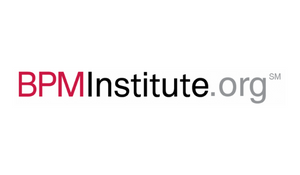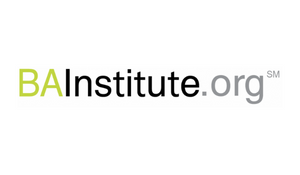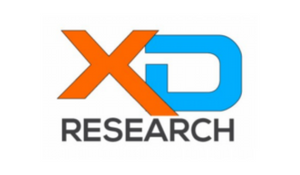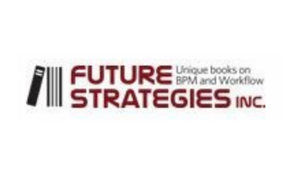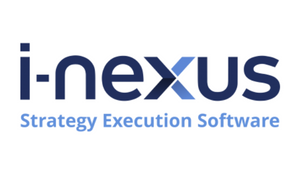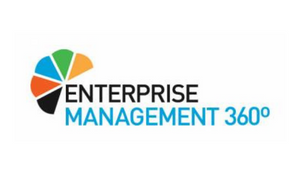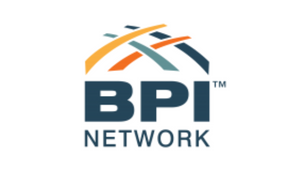
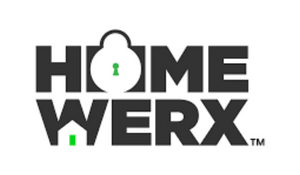
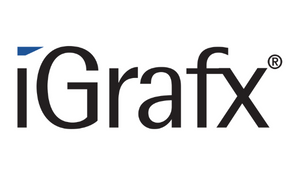
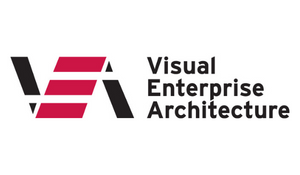
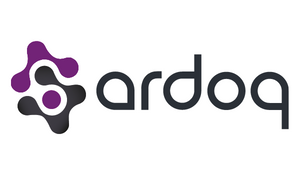
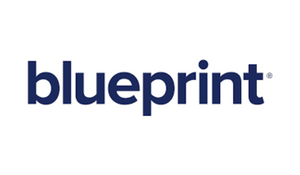
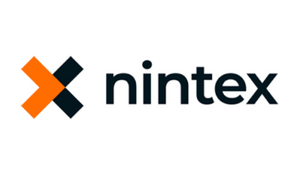
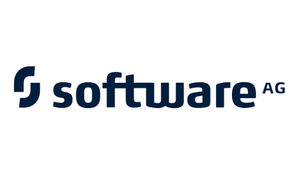
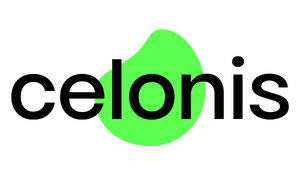
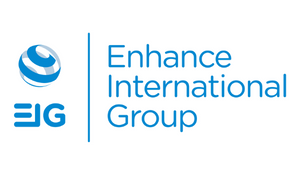
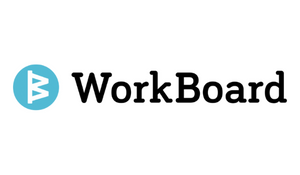
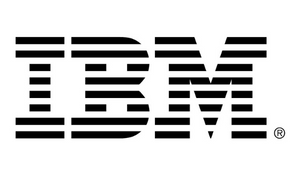
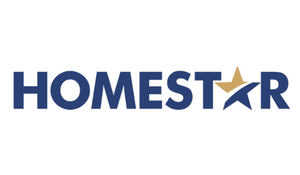
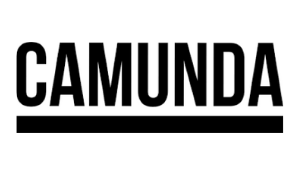
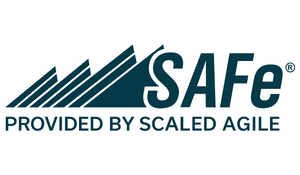
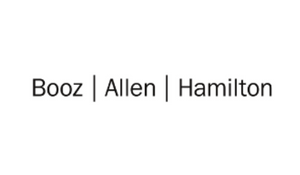
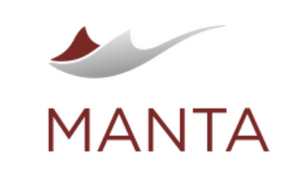
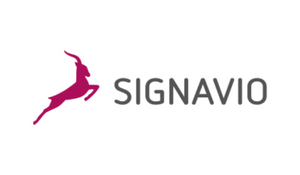
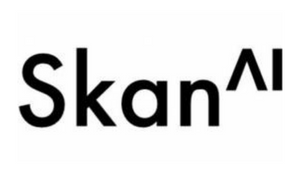
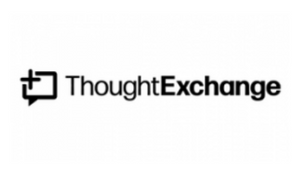
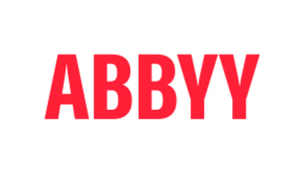
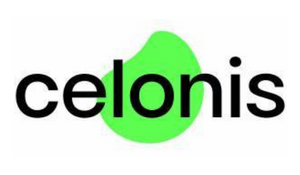
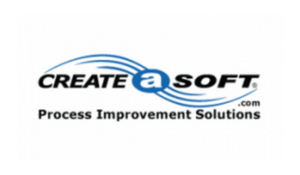
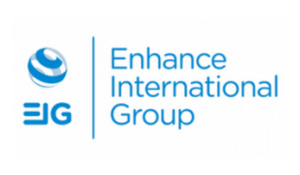
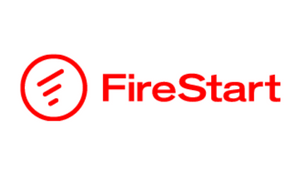

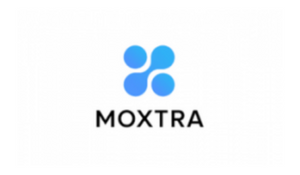
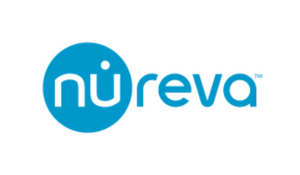
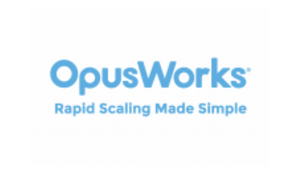
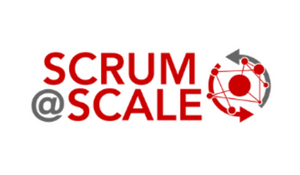
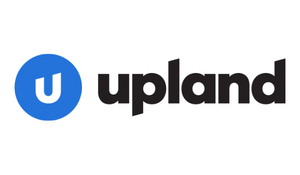
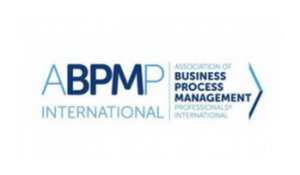
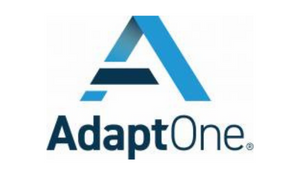
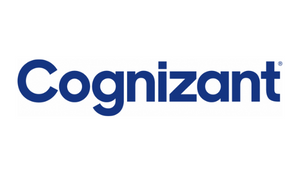
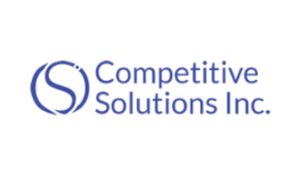
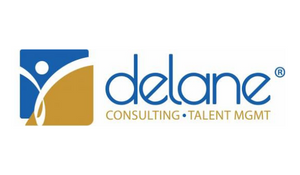
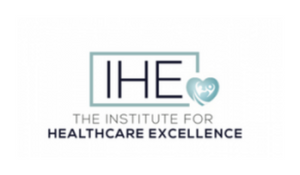
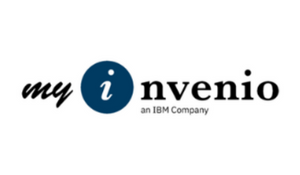
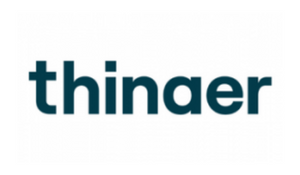
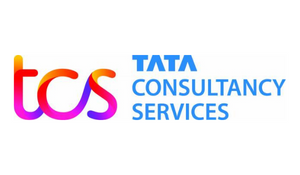
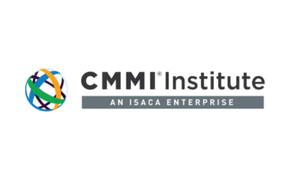
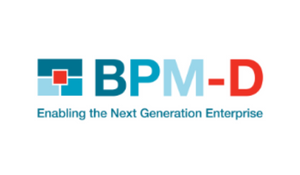
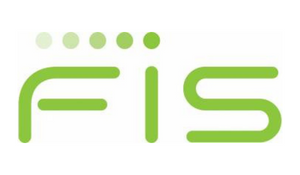
Courtesy of Modec's Bruno Fuks, below is a transcript of his speaking session on 'Know your team. How it can save your operation during a crisis' to Build a Thriving Enterprise that took place at BTOES in Oil & Gas Live Virtual Conference.

Session Information:
Session Transcript:
We are welcoming, Bruno folks directly from Rio de Janeiro, Brazil, and Bruno, please do join us. Bruno is an electrical Engineer and Automation Systems expert working the oil and gas industry for about the last 13 years around the world. Today, he's a nice short operations manager for Mode Decks, FPSO located in Brazil pre salt with capacity to produce 120,000 barrels a day. He leads the operation of A with a people first approach to create an environment of trust. Bruno truly believes that people make the difference for the success of operations, and the and the good leadership is key for success. Bruno, really glad to have you with us. Thank you for taking the time. Is sharing the journey Modec and the FPSO in Brazil.
Think it does, I think very much for the opportunity, Ah, I'm very happy to be here with you.
So, today, I would like to talk a little bit about the people management, right? How this can improve our operation, make it to the next level, Right?
People managing good leadership, who turns our team to do a very good results. So, to start the discussion, basically what we can see is that some of the companies, right, develop the object even goes based on their KPIs. Alright? And most of the KPIs is related to time asset, HSC, financial and clients, right?
And if you go deep of each KPI, basically we have a time is more or less related to the time that to state variation. It means that how much you produce and so on. so you, you drive your, your goes to the production process, number of trips and so on.
The asset is more related to the integrity and how we are maintained the asset itself and the project that you need to do HSE we discuss a lot about safety and regulation.
Finance shows profit. And a cost. that revenue, and the client has been internal, or external, You're going to be satisfaction.
Alright. This is my point of view, a very simple way to see the company strategy. Because most of these KPIs is a consequence, right. Should not be the goals of the company, or at least the objective domain objects of the company should be managed, The people, and leadership.
When I see people, management, and leadership, I would like to discuss about, know, deeply your team, right? It's not only to know how in the way that issue to with, No. Their necessity is the weakest in strength What they want for the future, right? And a link that they're going to do about know your people and the ... as the results. So we're going to try to, to show you, in the end of the presentation, how these two things can be linked.
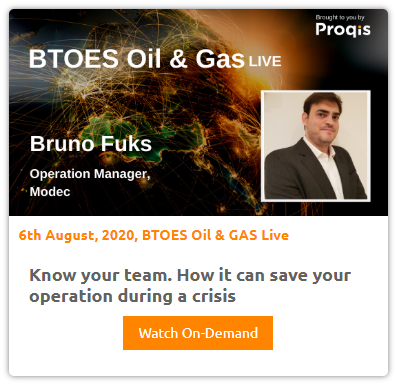 But the object, diff of each company, right, and not only for our guys market, but, basically, for each company that to work, as operations should be.
But the object, diff of each company, right, and not only for our guys market, but, basically, for each company that to work, as operations should be.
People. management, and leadership, management, and leadership wise, that this object, if you have a very good people management, they will drive you to reach your KPIs, right?
So the KPIs that you're seeing here is a consequence of having, well, know, your people, and how you interact with them. Alright?
So basically, we need to understand and define what these people management, right?
There is a wrong and myopic vision that we should have, like a drive people for results.
Actually, this is not the best and coffee, I think comes here to show you that this is completely wrong. So, the best way to, to, to have a good people management, is to know your team very, very deeply. So the advantage that you're going to have on that? You understand, the strain and weakest off each person. So, we can work on that, Right? Try to to anticipate the problem that you can have with this person when the new situation comes.
So, you're ready to were willing to develop your team, create our new talents, and define the success process for the next leaders.
So you're going to be more open to, to discuss about the job, and how each person can assist on that, right?
The people start to be safe, to say what they want for their future, and not only for the future, but everything that they think that is important.
So you start to have kind of flexibility, and this was very important during coffee 19 on any crisis that you have on off shore, which is very common on our shore, to have a spot crisis, when you have downtime and so on.
So to understand them, allow people to say what they want and what they see.
Help you a lot to to understand and treat the issues before it happened.
And the people start to be more receptive and flexible for the new situations.
So during the crisis like coffee one thing, you're going to have a better response, right?
This is basically the difference between you come of a new system and one person could say why we create a new system during the pandemic.
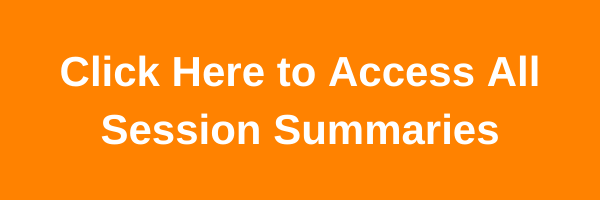 And another person could say, let's take the opportunity of the pandemic to create something new.
And another person could say, let's take the opportunity of the pandemic to create something new.
So these different answer to the same Perspective, right So the same change show how well you are manage your people.
So when you have a very good environmental work, when you create a good environment for people is more flexible and accepting that the change in move for the next step.
So this is basically what we would like to discuss here is how to create these environments, how we can have a very good environment of trust to lead the team the crisis moment and how you can flex belies the team during the time to got that for the new situations.
So basically how are we going to create a trusting environment? This is the key of the good leadership and people management how we can create an environment that every single employee thrust on you and bring the subject that they need to be.
So first of all, we need to have transparency.
So we'd be honest.
That's, that's the point. Be honest of the team.
Say to them we are in Point A, we need to reach the point. B we have a pandemic and we're going to survive like these and doing these type of activities.
It's not that I like about talk with the demon and make them afraid of what's coming now, but be honest, they need to know which ... coming, and how we're going to treat this challenge, right?
So, these type of transparency creates a feeling on the team that they are supported, that, the team can go and follow the leader, because they know what they wanted to do. They know the company, what the company wants to do. So it's very important. When you say to the person that they want to do something you just not say, please do it.
You need to explain, why. Write, the why of the company, why the company is doing this, why we are trying to move along this direction, and how he can support you?
Because, if you know deeply how they can support you, He will follow you. right.
And I can't believe, or I'm driving it to not believe that one person wake up in the morning think that they would like to do something wrong. Every every single person wake, up in the morning say, I want to do something very bad. Very good. So, I don't want to do something better bet. So, how I can do something good And if possible, be recognized by that.
So, with a transparency, they can understand how they can help you and bring gift ideas. That's the key, They come with ideas and this is very important. And the second part of have a trust environment and mostly on board is the constancy.
So you need to, too, because that's what they're doing, right? I have a list on several of our speakers, and there's 1 specific 1, Simon Sinek that gives me a very good example. It's like to go to the gym.
Alright, if you go on the first day to the gym and work 24 hours a day, when you come back to your home, you're going to see nothing.
If you do that for the second time to, again, 24 hours a day, when you come back again, you're going to see nothing.
So it's not about to do it exhausted.
It's about to do it every day.
So every single day, you need to go to the gym every single day. You need to do it right, every single day. You need to go there and follow what you believe. So if you deeply believe on what you're saying, if you deeply believe in what you're doing you should she do?
You should try.
Make it an example. People follow examples.
So, if you make a parallel into the offshore market, this is much more related to the safety. Safety, environmental Board, a safety culture, as we normalcy. So safety culture, it's not something that you can develop bringing. The, OK, I'm going to the meeting, right? Some procedures make a chicken parade in the area, and bam, you have a safety culture is not going to work like that, but the most important thing in this moment is what you're going to do every day. Like every day, in the morning, talk about safety every day, you're bringing what's happening in the market to the team. And discuss deeply every day you go to the area and find.
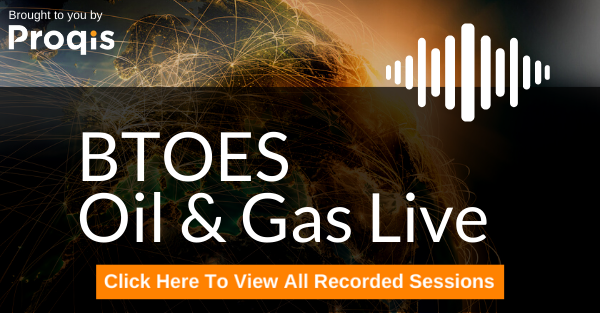 What is your hazard? What is a threat to you?
What is your hazard? What is a threat to you?
So all of these actions, if you do it every day, you are developing a safety couture, a developing place, that people are safe. Right.
I'm not saying that. we're not never going to happen. Issue it will. But you know how to act. Your training for that. And every single day, you create the environment that people can speak to you.
So, the number of incidents that's going to happen, it will drop a lot.
People are going to today a work looking for what they should look it for, and reporting. So if they're not able to fix on that moment, someone will fix in the future, but they reported, and that is the most important thing, so constant C is not about doing something one day for a long period, is doing conscientiously and thrust on board.
It's something that is continuously you're not going to have a thrust fired from the first moment that you're right, you're only going to have a trust environment.
After awhile, when you show the team who give the examples, you try and move in and continue to listen to the people. So when you listen to the people, that's great key for any leader, is you need really listen to the people not say, OK, you can speak, and then continue to work on the computer while you're speaking.
No need to stop, Look for him, if possible, take the notes that you need, and the best fee is try to do something with that information and give the feedback of what you do. So these give the ownership of the person that everything they're doing, it's been lessened by the management of the company, believes it is believed since by who can take the actions.
And that once he see the improvement done, because of his information, or he's advice, it's a, it's like a recognition for the person. So you're going to be very well. He, his look for more like He's tried to find more things to say to you something that can be improved something can avoid the risk of someone be hurt.
So listen to the people is very key issue for a trust environment to allow them to be part of this environment itself.
They feel that they are being more lot of what a tiff with the environment and help each other. So they're going to feel great product, right? And this direction, when you listen to the people everything comes, so they grow.
How, how they can improve themselves, and they will come to you and ask how I can create a better environment for me?
Like, it's it's, it's fair to the people try to improve, So how I cannot create an environment where I can go to the next step, or I can go to the different position? That's why I say in the beginning, that we should need to know what they want for the future, Right?
So, the company, and the, not only the company, but managers and leader should give them the instruction and the way that they can have the resources to grow food, to go to the next level. Right? You can have a different position go into another position. He's just a matter of trained a guy. Like, and duty dispute, you know, how deeply he wants that.
And I can guarantee to you that once people start to grow, do you deliver to you 120% more?
And they will, they will follow, because they know that you are improving their life. You are giving them the possibility to work in a different position in a different place that they wants to work.
So, they are willing to do, to delivery more, right?
And the last one, and most important one, is, do what you say.
Leaders are being followed, by example. Right?
So if you make the parallel with the constancy that I talk about, the safety environment, if you, every single day talk about safety and the first moments that to go on board, you do not use the full BP.
Everything that we are trying to do go away, so wants to say that this thing is important to you. You really need to do it, right? You really need to follow what you're saying, and do it. If barrio is important, people, you need to be 100% available to talk to people.
I'm not saying that to. You're going to have full flexibility to talk with them every time, right?
But what you cannot do, and it's very important is if you are carrying about people, you should not say, OK, Tokyo supervisor, then he talks to me.
If it comes to talk to you, is something that they wants to talk with, the height management of the operation.
So it's something that they pass through the drive, that they can, it comes to you.
So at that moment, we should stop and listen to him.
Every time you have meetings, we have our own work. They cannot say that you can stop your work to do that.
It's not possible, but if not possible to attend on that moment, schedule a time, say, now, in the middle of something, can you talk later, can talk after the, the my my finish here. So, and attend that meeting. I think even the feedback. So you need to do what you say. You need to follow exactly what is important to you. So the people off shore will follow exactly what is important for the leaders. So it's all cascade, right? If the operation manager is important for him to safety.
The OEMs feel that, and feel that's quite important as safety, and all the people below the OEM gonna feel that on to the point that reached the guy that do the job.
The same thing is about the opportunity for growth.
If you create an environment where people are willing to say what they want, you start to have a very spot people saying, so, this trust environment, they start like that, have a very spot, trust, environment coming. And one person feel safe, then a second person feel safe and help the other person. And then, the time you're going to have everybody helping each other and you have the trust environment on board.
So, making a parallel, what the moment that we are leaving today. If you look for the the big revolutions, right?
In the, in the world, you have, first, we have this team, and then you have the electricity.
Later on, I have computer, and now we are talking about the cyber system network, and so on.
Everything in common here is that every single revolution, the company change, and the people fork was awful change.
So, if you make a parallel, offshore market to make it easier for the ones that the listeners first will have ...
systems, and then you have electrical devices, and then you have a distribution system controller.
And today we are talking about these four points to you.
Every every single part of these, that has in common is about change Each revolution, accelerate the change for a specific moment.
So once you start to have electrical devices, it's not killed. ... devices actually, today, we still have offshore something, magic system. The one of the most important. Actually. Alright? Because we fought him, we're not going to have operation at this moment all. The biggest and most important ...
magic system does not go away.
But we start to have a different tools to solve our problems. Like the control and ...
.png?width=742&name=Screenshot%20(4).png) system is very difficult to control the Swiffer position or something similar to that, is more easier.
system is very difficult to control the Swiffer position or something similar to that, is more easier.
So let cool devices start to come to improve ROA to do the operations, but not Q. The last.
uh, way to do it. So, this, yes, is the same, and these four points either is the same.
Everything in common makes difference, our operation, but something very point, that needs to be seen.
The, the technology change, not by its own, solve the problems.
I'm not, I'm very friendly to technology evolution, actually, by my background that I liked it, but it's not going to solve at all, right?
What changes is company need to, to look for the change and make its own change, and naturally make the focus of the people.
The company that don't pass on this change, probably want to leave the market, right?
And if we do the parallel of that with ..., Coffee at 19 has the same behavior of word revolution.
We change completely our way to do.
We have new concerns, so company needs to change, and the people also contain is changing.
So making this parallel of coffee, 19 restrictions, we need to understand deeply what is making this change, right?
Here I list at least some of the change that we had on the market revolution, about coffee at 90.
So we start to have problem logistics, like several countries do not allow people to go and come, so they are in the locked down. So, how are we going to put these people on board?
The transportation of persons are compromised.
So how we're going to bring these persons to, to the off shore, and I'm talking on not talk to you about only flights, but also bus, and so on.
So, and how we're going to bring this person's, all right, because, if you have one person, that is suspicious, to have coffee at 19, and you need to avoid, as much as you can, to have the fighters' onboard.
If this person is together, several of other persons, how we can confirm that the other person's not be contaminated with complete banking?
So, or at least not be suspicious.
So, we try to start to limited the number of person in each transport, right, in each car and Government E versus the necessity of quiet and time. So we need to plan better. We need to be in advance of what's coming next. So this is just, for instance, the logistics restriction, But you also have the supply wants with NEMA Cheetos or manufacturers stopping working the costs increasing, right?
I have the human resource of the contracts changing home office now for everybody almost that weekend. Like, How to deal with that? How to do for the age of the business.
So, the operation itself is impacting by the lack of people on board in packing of the minimum crewed that you have for emergency response, or how are we going to do to continue operating with the minimum team, right?
Our procedures now need to be adapted.
Like, sometimes you have additional BP, or sometimes you have a different way to do, like a distance social distance. How are we going to do?
So and I embarked process, how are you going to continue to operate or your, your vessel, right?
And how will you need to maintain how we can maintain the safety onboard with this new side?
So these operations constraint, as I said before, about people knowing the people is the link that they want to do, right? For the impact on a minimum crew and lack of people onboard.
When you have people saying to you what do they want to do for the future and you listen to them not in the time of the pandemic, right?
Before it and you have the stressed environment, you, the people that can assume another position, right? Of course, that would need to have regulatory trainings. This is not negotiable. Of course, that they need to be stunned the standing on the position for awhile.
But if you listen to the people and give them the resources to do if you train them before the pandemic, if you train them before, any emergency, they are willing to perform a job on the next position.
So it's, there is nothing wrong to have one guy on the deck that was train it as a crane operator and have all the certificates have all the trainings and work 1 or 2 days or three or at least one week on that position before. Have history. Good history the time that your crane operator maybe not be possible to embark. For any reason, this guy could assume that position, Right? Of course, that you need to run your entire internal process to guarantee that you're going to be in a safe way, and in a good way, and what your management system safe.
 But if you do that, you're going to have flexibility. So this flexibility could be the key point.
But if you do that, you're going to have flexibility. So this flexibility could be the key point.
Do you stop your vessel or not to have a minimum crew feel it or not? So basically, what's happening is that you need to listen to the people before so they can start to train you know, the position.
And the good thing that comes from that is that you're going to have people that sometimes already make the change, right?
Position, like a scaffold, the ..., or the past, they make them movement the train, and to have our open opposition there in the guy, Assume that position, these guy knows very well.
The, the scaffolding jobs. So, not only you'll be able to assist the scaffolding guys, on the Daily Base to help them to understand the better job.
But also, the times that you need him, even willing to pass this through, He will try as much as again to give you, what we need to continue operating these comes, because the trust environment create a moment that the team help each other.
They started to assist each other, so we can achieve our KPIs as was defined before by the company.
So, this is the most important thing, is to create an environment that people help each other. And by the time that you need, you're going to have that.
So this guy that move to the next position give you 120%, and he will be flip. It gives you the operational flexibility to, by the time that you have a very minimum crew, or an emergency, or any issues on board. He will be able to say, hey, I can help you.
I have the certificates that can help you in this position, someone comes to mind.
So this gives you flexibility to look for the operation.
Because Scofield 19 do not give you too much time for planning.
So this is the way that you can plan herself. But you need to be done in advance.
So this is one of the, the, the areas that have changed.
But it's not only like that, right? They have several areas.
That comes with changes. So contract, Medco RS huge change. So now, some companies has been requested for tests before embarking. So how are we going to rotor procedure for that, right?
IT, to support the theme for home office and so on.
So, all of these, uh, areas is being packed, but not only that, right?
So, I can say, the ... 19 is accelerating. The change of the company.
We become more fasts, we've become more changeable, Adaptive, right?
We could identify what is impacting us and improve, alright, so, passing through the Co V 19, I hope that we can pass very fast, but these come a legacy of how are we going to manage the team in the very big crisis, right? The companies adapt their business business protocols so they can have these on now.
Very fast way to move for the next point to pass over. The ... or any crisis has come.
So the most important thing here in a message that I really want to pass is, if you create a trust environment in the beginning, if the people are willing to help, and you will know better, for the new positions that are going to be open. Who, who are going to be there?
Which person is going to put their classes to? So, several of activity that you had before, you're not going to have any more right programs, developing programs, that there was in the middle. That needs to be changed it.
So, these things, if you know the people very well, you are able to, to pass the, price, is fairly fine.
So, the benefits of an environment of trust, as I said, is, to have a very fast response to that change, so people know the focus of the company and what they want to achieve. So, that's why I said about the why of the company, how the company will reach, and what they want to reach, right? So, you know.
What the company wants to do, not say to you, please do that.
The people start to be very safe, to speak, and even good ideas.
And here is exactly what I say about the the changes, why you're going to create a new, a new system instead of, let's create a new system.
So, people start to speak what they want, and leaders, we will know very deeply who, who cannot be possible to, To deal with the new rules, so people has specific Gaye, yeah, waste to work. They have knowledge.
And the, if you know, very well, their knowledge, and now how they like to work, you can put them a specific position where they want it to have a very good performance.
 So, in terms of operation, you're going to have a flexibility, As I said before. People that was training and out of the position desire to come to another position will help you on the time.
So, in terms of operation, you're going to have a flexibility, As I said before. People that was training and out of the position desire to come to another position will help you on the time.
And that, this is like a ball, you know, that every time that you start to do that, more people started to say, Advertisers do that, more people start to see. So start to have a very good environmental board in people feeling that they are improving. When they see that one guy from Maureen Team comes to changing room and improve itself.
Because he makes the training's, he go to train by himself and come back.
So, people start to think that they can have a better job.
It's just a matter of them to try to look for it. So, you start to have a very team with very deep knowledge of others.
Disciplines, Right.
And the good thing is that, once you set out that the good environmental board, barely, you're not going to be able to see which discipline is responsible for, what, because everybody want to start to help.
So when we need a scaffolding for our maintenance job, the Marin thing going to be able to help them without too much question. They just do, because they know that's the best.
So the teams start to work in a very easy way, and you can see the integration of the team. So this is very good.
And these leaders, to our very motivation team, in a team, understand that the new normal at ease, and they will try to help you wants to see what is important, and how this is important, why.
They will try to, as much as they can to identify for you how to do that. And if they're not. If they cannot, they are going to be, frankly, in an open to speak with you. I need resources, I need that, that, that. So you know what you need to do.
And this gif of short team, for instance, are all for that. There is someone supporting them on shore. And that, if the onshore, I would confront that, what they say that they can do, they will be able to do what they say that they cannot do. We need to help them to do it.
So, we need to give them the resources that we need.
So, these help us a lot for planning, and, if you say to them, that the most critical thing is safety, and this is basically for offshore market, and I think for the industry, right? The most important thing, we can see what's happen very soon, to us, a couple of days ago?
So, when we say to the, to the teams that the safeties priority, right, they are not afraid to say what's impacting them.
So, they've come every day and reported to the supervisor's supervisor, going to be able to report until the price of that of the company. So, this is a way that we should bring, like, if I cannot solve, some mono both meet the need to solve. And if there's someone not above above, we cannot solve so on both of the above person needs. So, management is, it's more about looking for the people that went to do the job, Not looking for the results of the job.
So, that's why, in the beginning, I said that the KPIs is good. I have nothing wrong against that. So, nothing wrong with the KPIs.
But the most important feat to seize the KPIs as a result of people management, right, and how we will deal with that.
So, the message that I like to pass here is, let's focus on people.
Let's focus on how we are leading them.
Let's try to give them a supportive way, so they can beaut trust environment on board, and where we can get the results of that. And the driver operation of a well stage, the next level.
And us, luckily, we best or ... with a better procedures, better way to operate, with huge flexibility proving that these management can help us.
Thank you.
Excellent. Brunell, thank you so much for for that and the presentation and I have a question is there that have come up during your thought. So I'm going to relate those to you, first of all, give it a little bit of context here of how you're doing this and Modec. I know you have several platforms, They're real and the ... is part of a very large organization, so tell. Tell us a little bit about the, the the context. Where are you applying these concepts? Is it in a specific area of the business as just something that's happening companywide so tell a little bit about the scope of what's happening here.
OK, in Munich, we are applying this on the very well in the company whites. So basically we need to adapt ourselves.
As you can see on the, all the of the disciplines that was a change, we need to have a very great and ...
team that start to work on that change. So, supply the, the safe environment, and the the who the leadership.
Through the years, more, they adapt and change the way that we are doing, for treat the leaders, right?
We start to develop the leaders, so the leaders can start to, to improve their self and generate these environment, or at least start this environment. So, we have a huge fleet on Brazil. Mode, It's a very big company.
But, that we centralize these things, so we can start to have a co-operative actions that we can develop ourselves, and pass this to the teams. So, I've seen on ..., not only on the FPSO that I work. People growing all the time.
New opportunities coming. So it's wonderful job that M.o.o.c.s are doing this moment.
And the drive of look for the people is basically what makes the huge change.
Very good. And they're in Brazil and the under your area of Span or area of control. When did you start having this approach? Is this something that dates back to many years ago a few months ago? Started with the pandemic. Where was the timing for this to get started to be implemented there in Brazil.
So, that's there so that the work, we start this movement. And what about the 201718?
It takes time.
It's not something that's gonna happen soon, santoli, I would say that, more or less.
Half a year and a year to the, that, the teams start to see, the change, Start to see, that we have, we are trying to improve our confidence, and so on. And you can collect the results very fast. The first results. And this, it's easy to be seen.
You can collect, in the first moment, because, the Safety Board, the number, we have, some, some programs on Board of Melodic, and the number of reports, increase immediately. That is the first, the feeling, that you have, that people start to look for the threats, on a very fast way.
And in the second point, you start to have a very small curve. So the curve is more or less, starting very fast, and then start to standardize it. And that's where you, you understand that. Do you reach your safety culture?
.png?width=742&name=Screenshot%20(4).png) Because. Or your, your trust environment is there. Because your results not starting to drop.
Because. Or your, your trust environment is there. Because your results not starting to drop.
Even if you're not in a search, something new, So the feeling that the, the wheels is running. So, so, they, they know how to do it, so, it's more or less.
6 to one year to start to have a first results, but then you're going to have a very good results.
Very good.
And, though, one of the questions that came up, is that when you start, how do you start, is there like, companywide communication about that? We're trying to establish, a culture of collaborations of trust. Are these small meetings? How do you operationalize the building of this environment that you described?
Yeah, by our experience. This need to be come. From the top management of the company. So, as I said, if, the managers and leaders say that they want this, who, is below them, start to do it. So. Because, you know, what's important to them? And they need to give the example. So, this, is start with the top management of the Company of The Melodic. And this was dropping down for the teams.
And suddenly everybody's doing the same way, which lead us to, to, the team, communicate to each other. Of course, this is very normal.
And they feel that the movement of the company, to give more people perspective. Then, only the, the cost, and fees want. So, of course, the cost is important, that we're never going to forget this. This is not something that you're going to say, oh, and not get any more about the cost, we do. But now, we're looking more for people what they want to do for the future, How I can help them to reach there.
So, you're going to see the time base that, that people start to drive their, their wishes to you, that people start to discuss with you what they want. So you start to have one person to help you from human resources, or any other area of the company. So they can communicate and this is a Leica.
We start with the top management on the very short meeting discussing about this and then you derive these below for improving, improving, improving. And one of the things that's very important then, we started to do is discuss with the top and the bar off the team offshore.
What is our results where we are in what we want to do? So, before the pandemic we normally go on board to do that with the pandemic. We're trying to do these on the theta way. But the important thing is, we start with a very small people discussing.
The top management discussing this, and pressed, or the thing, very good. And I want to ask you about a question that one of our respondents I was just looking at. one of our participants asked, before you talked about that, it was top-down, he was wandering.
This is Ikai from Madrid in Spain, and he is asking, if you don't have that top down mandate to build a culture like that, do you think there is something that can still can be done? when there is not a company wide effort to do, the interests, should use to apply these principles locally, and try to build it from the bottom up?
Do you think, that still works, or it's just hopeless to try to do that?
Yeah, it's possible.
It's more difficult, Right, because if the top management of the company do not create this environment by its own, Uganda stopping us at the point, right? you're not going to, to come completely out of this trust environment, because you're going to create a very small trust environment, which is good. You can create, right?
But you're not going to reach the potential that it is.
So if you have a certain point that the manager understand that, you need to create this environment, the top management of the company don't.
He can try to create, it's not, I'm not saying, that is easy, created. Frist environment is not easy, it's, as I said, the constantly thing, they need to do it and do it and do it. And people who question. A lot of things for him, OK. Why are top managed not want that, why we are doing that in the other vessel or not, because this create more jobs for them in the beginning.
But it's possible. It's just a little bit more difficult but it's possible.
Very good. Very good. Bruno's, great presentation. Great! It's awesome to have an organization of the size of ... and leaders like you who are implementing true cultural transformations. This is really what you're doing and and you have been fortunate to do that before the pandemic hit. And I think that you're harvesting the benefits of that now during the pandemic a big crisis. So, this is an awesome story, and the great journey, and we look forward to following up and see what's going to happen. As a matter of fact, on August 25th, and 27th, we're going to host our Cultural Transformation Conference. And, and, and this is very much a preview of that, and we're going to have lots of organizations and leaders like you. Who are transforming their cultures at different levels with different approaches.
And the way that you're doing is very, it's, it's very, it's great to see the progress you're making, the results, you're gatti, So thank you very much for taking the time to come here and share this, this journey with us. We really appreciate that.
Thank you very much as a very happy to, to have this conversation. Thank you very much.
Thank you, ..., it's all very good.
All right, Ladies and gentlemen. This concludes this segment of beetles oil and gas live. We're gonna come back for our last segment of the conference at the top of the hour And you do not want to miss that one. We're going to have Debbie Roth here. Doctor Debbie, who is going to be sharing with us, share the journey of change management, apply to digital transformation. So very much aligned with some of the topics that Bruno just talked about, and Modec in Brazil. That B is a technology technology leader at at Dow and the global change leader at thou as well.
And she's going to bring her perspectives on change management, apply to digital transformation. And it's fascinating view of what's going on with Industry four in this very rapid environment in the oil and gas industry with the pandemic and disruptions in demand. So, she's going to bring it all together for us, and talk about how change is impacting these transformations. So look forward to seeing all of you back at the top of the hour. Thank you.

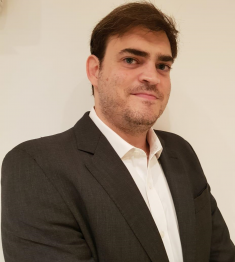 Bruno Fuks,
Bruno Fuks,
Operation Manager,
Modec.
Electrical engineer, post graduated in Automation system (both graduated in Rio de Janeiro), working on Oil and Gas market for last 13 years, which part as engineering EPCI projects around the world and part as FPSO Operation support and Manager. Nowadays working as onshore Operation Manager of a FPSO located in Brazil Pre-salt, driving the operation based on people management and leadership perspective. I truly believe that people make the difference for the success of operations and motivation is the key for the professional grow in the team. I already lived in Romania and UK for work and today living in Rio de Janeiro. Married and father of 2 small kinds, I get in my family the support necessary to continuous to try to improve my skills and try to do my best.

View our schedule of industry leading free to attend virtual conferences. Each a premier gathering of industry thought leaders and experts sharing key solutions to current challenges.
View Schedule of EventsWelcome to BTOES Insights, the content portal for Business Transformation & Operational Excellence opinions, reports & news.
-------------------------------------------------------
Search for anything
Insights from the most progressive thought leaders delivered to your inbox.
Insights from the world's foremost thought leaders delivered to your inbox.
Being a hero is all about creating value for others. Please invite up to 5 people in your network to attend this premier virtual conference, and they will receive an invitation to attend.
If it’s easier for you, please enter your email address below, and click the button, and we will send you the invitation email that you can forward to relevant people in your network.
View our schedule of industry leading free to attend virtual conferences. Each a premier gathering of industry thought leaders and experts sharing key solutions to current challenges.
View Schedule of EventsWatch On-Demand Recording - Access all sessions from progressive thought leaders free of charge from our industry leading virtual conferences.
Watch On-Demand Recordings For FreeDelivered by the industry's most progressive thought leaders from the world's top brands. Start learning today!
View All Courses NowThe premier Business Transformation & Operational Excellence Conference. Watch sessions on-demand for free. Use code: BFH1120
Watch On-DemandInsights from the most progressive thought leaders delivered to your inbox.
Insights from the world's foremost thought leaders delivered to your inbox.
Being a hero is all about creating value for others. Please invite up to 5 people in your network to also access our newsletter. They will receive an invitation and an option to subscribe.
If it’s easier for you, please enter your email address below, and click the button, and we will send you the invitation email that you can forward to relevant people in your network.
Courtesy of Nintex Pty's Paul Hsu, below is a transcript of his speaking session on 'Improve employee productivity during and post-COVID by ...
Read this article about HP, Best Achievement in Operational Excellence to deliver Digital Transformation, selected by the independent judging panel, ...
Read this article about BMO Financial Group, one of our finalists, in the category Best Achievement in Operational Excellence to deliver Digital ...
Read this article about Cisco, one of our finalists, in the category Best Achievement of Operational Excellence in Internet, Education, Media & ...


